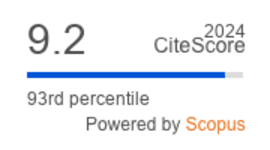Gut Microbiome in Obsessive Compulsive Disorder: Potential of Probiotics as an Adjuvant Therapy
DOI:
https://doi.org/10.36877/pmmb.a0000272Abstract
The gut-brain axis concept has become an exciting area of research in psychiatry. Gastrointestinal inflammation and gut microbiome dysbiosis have been associated with mental health disorders. Obsessive-compulsive disorder (OCD) is a debilitating and complex mental illness that cannot be completely curable, stemming from many causes and risk factors. Generally, there is limited research on OCD and its association with the gut microbiome compared to other psychiatric conditions such as depression and anxiety. This review aims to provide insights into the association of gut microbiome and gastrointestinal inflammation with OCD. Besides, the role of probiotics as a potential therapy will be discussed in this review. The studies compiled in this review demonstrated variations in the gut microbial composition, often with lower microbial diversity in OCD patients compared to the controls. The gut microbiome is also involved in regulating the immune system. Alteration in certain groups of gut bacteria could give rise to inflammation and manifestations of gastrointestinal symptoms in OCD patients. As an approach to restoring the balance of the gut microbiome, probiotics serve as an effective solution. In vivo animal studies showed that probiotics can potentially improve OCD symptoms. Nevertheless, clinical trials are required to determine the efficacy of probiotics as an adjuvant therapy to alleviate OCD symptoms.
Downloads
Published
How to Cite
Issue
Section
License
Copyright (c) 2022 Grace Yong-En Kong, Vengadesh Letchumanan, Loh Teng-Hern Tan, Jodi Woan-Fei Law

This work is licensed under a Creative Commons Attribution-NonCommercial 4.0 International License.
Author(s) shall retain the copyright of their work and grant the Journal/Publisher right for the first publication with the work simultaneously licensed under:
Creative Commons Attribution-NonCommercial 4.0 International (CC BY-NC 4.0). This license allows for the copying, distribution and transmission of the work, provided the correct attribution of the original creator is stated. Adaptation and remixing are also permitted.

This broad license intends to facilitate free access to, as well as the unrestricted reuse of, original works of all types for non-commercial purposes.
The author(s) permits HH Publisher to publish this article that has not been submitted elsewhere.



.png)

.jpg)
